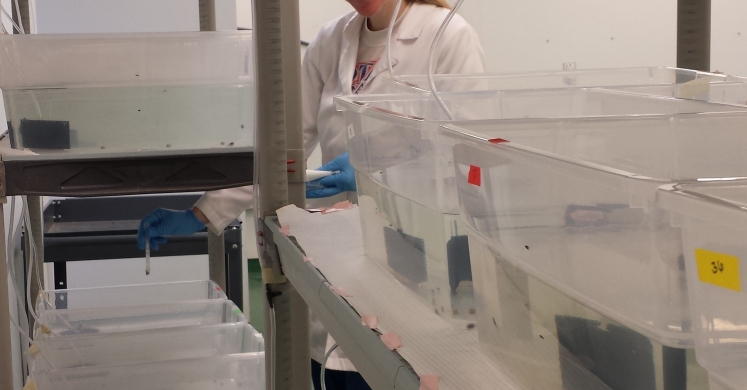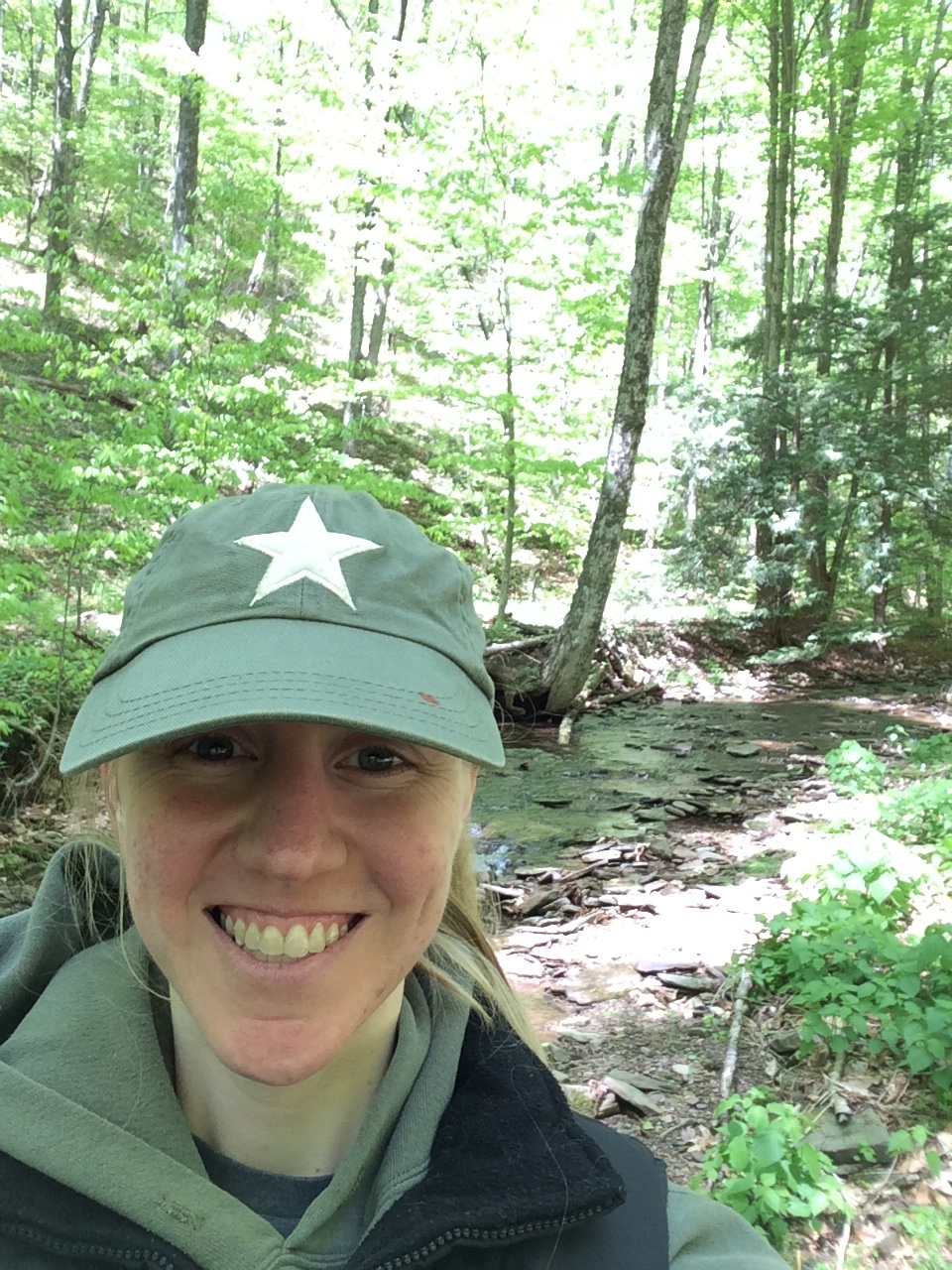Blog

Interview with a Scientist: Sara McClelland and Aliyah Weinstein
If there is one segment of society that is often misunderstood, it is people who work in science fields. Public perception of scientists tends to lean towards lab coats, crazy hair, and beakers full of chemicals, especially in the eyes of children. In reality, most scientists are just regular people who want to make the world a better place through scientific discovery. The best way to dispel the myth that scientists are boring or crazy is to get to know them; the purpose of this segment is to talk with real scientists to ask them what they love about their jobs and why they think their work is fun and important.
This weekend we will be featuring our Science Communication Fellows, Sara McClelland and Aliyah Weinstein, at our "Meet a Scientist" public program. The Science Communication Fellowship program at Phipps seeks to bring scientists and public audiences together in face-to-face public interactions that promote appreciation and understanding of current scientific research and its application. As part of this programming, Phipps will be hosting a "Meet a Scientist" public program this Saturday, May 21st from 1:30 until 3:30 PM in the Tropical Forest Palm Circle, where visitors can engage with our science communication fellows and learn all about their research and occupations and even see the very instruments and equipment utilized everyday by scientists. Let's get to know the fellows!
Science Communication Fellow, Sara McClelland

Hi, my name is Sara McClelland and I’m a biology PhD student at Duquesne University. I’m interested in understanding how the choices we make impact the environment. I’ve always been an outdoor enthusiast and I still love going for hikes and playing in creeks. As I got older, I began to learn that the wetlands, creeks, and other waterways in Pennsylvania are very polluted, which made me wonder how those pollutants affects all the animals I love trying to find in or near the water. This has led into my current PhD research, which is analyzing how pesticides affect the development, physiology, and behavior of tadpoles and frogs.
Why did you become a scientist?
I decided to become a scientist because I’m curious about the way the world works, and science gives us a way to answer our questions about the world.
What is the most exciting thing you’ve ever done at work?
I think the most exciting thing I’ve ever done is that I got to work on a team to necropsy a gray whale. Necropsies are like autopsies only for animals, and often times when marine mammals that have died wash ashore, scientists perform necropsies to try to figure out a cause of death. I found this to be particularly exciting because gray whales are extremely large – they can measure over 46 feet long and weigh over 30 tons!
What skills do you use in your job?
I think the most important skills I use are being organized, meticulous, and as my mom would say “using elbow-grease”. Science consists of a lot of hard-work doing simple things like cleaning out aquaria and carrying water back and forth to do water changes for tadpoles.
What is your favorite part of your job?
My favorite part of being a scientist is analyzing data and trying to figure out what it means.
If you weren’t a scientist what would you be?
If I weren’t a scientist, I would probably work at a movie theatre. I used to work part time at a movie theatre and I loved it. It was fun getting to interact with people and getting to see free movies on my days off!
Why is science education important?
I think science education is very important because people need to understand how science works. The most pressing issues that face us today rely on scientists doing research to find the answers to our problems or cures to our diseases, and it’s important that people understand how scientists use the scientific method and peer-review process to find these answers.
Science Communication Fellow, Aliyah Weinstein
My name is Aliyah Weinstein and I am a graduate student at the University of Pittsburgh. I grew up in New Jersey and moved to Pittsburgh 3 years ago to study at Pitt. You’ll learn about me as a scientist if you keep reading (!), but outside of science I love to travel, read historical fiction and sci-fi, and learn languages. I also enjoy writing, and I blog at Isn’t That Grad and I’m active on Twitter communicating about science and Pittsburgh.
Why did you become a scientist?
I became a scientist so that I could work on developing treatments for cancer. When I was a junior in high school, I worked as a summer camp counselor and had my first experience meeting someone with cancer- my boss’s 2-year-old niece. I was trying to decide out what field within science I thought I would like to major in during college, and that interaction is how I figured it out. All of my research since then has been related to figuring out cancer.
What is the most exciting thing you’ve ever done at work?
One of my projects involved isolating cells from healthy human blood in order to study the function of a particular type of cell. I was able to use my own blood during the project and take pictures of my own cells under a high-powered microscope!
What skills do you use in your job?
As a scientist, it is foremost important to have data that provides a convincing answer to whatever problem you are trying to solve. One of the most crucial things after that is to make sure that experiments can be repeated, to confirm the results that were obtained the first time around. Secondarily, it is important to be able to communicate the results you get to other scientists so that the whole scientific community can move forward and make progress together. So the skills I use most are problem solving, organization skills, writing, and public speaking.
What is your favorite part of your job?
My favorite part of being a biomedical scientist is problem solving. A lot of times, an experiment won’t give you the results you expect- sometimes because the method needs to be tweaked and other times because your original hypothesis was incorrect. I love thinking of science as a puzzle and working every day to fit all the right pieces together in order to answer some big questions in cancer biology. I also love the opportunities I get to travel. Science happens all over the world, so scientists often travel to meetings in other states or countries in order to meet each other, share data, and collaborate.
If you weren’t a scientist, what would you be?
If I wasn’t a scientist, I would be a writer. I enjoy synthesizing big ideas and putting them together in a way that people can understand.
Why is science education important?
Science education is important because non-scientists actually have a huge role in determining how much progress is made in treating diseases like cancer! Most of the money that scientists use to fund their research comes from government agencies. Elected officials are the ones making the decisions on how much money to devote to research, and the public is who chooses who is elected. Thus it is important that more of the public understand science so they can make better-informed decisions about the support of scientific research in the U.S.
If you'd like to learn more about our Science Communication fellows and their work stop by the Tropical Forest Palm Circle on Saturday, May 21st from 1:30 until 3:30 PM for our "Meet a Scientist" Public Program.
Photographs provided by Science Communciation Fellows.

